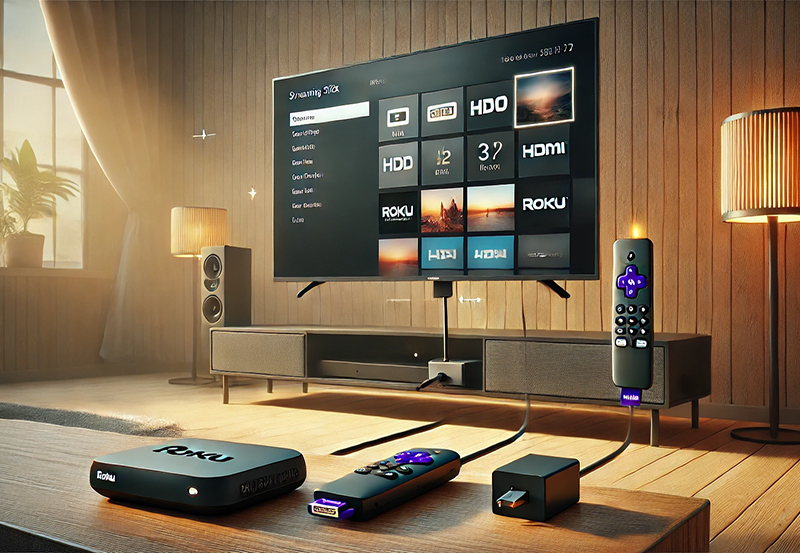In today’s digital age, streaming content through IPTV (Internet Protocol Television) is gaining immense popularity, offering convenience and access to a wide range of TV shows, movies, and live broadcasts. However, sharing IPTV playlists on a smart TV, especially in a shared space like a living room, hotel, or office, can present privacy and security risks. Securing your IPTV playlists is essential to ensure that your content remains private, safe from unauthorized access, and protected from potential security threats.
This article will guide you through practical steps to secure IPTV playlists on shared TVs, ensuring a secure viewing experience without compromising your privacy.
Buy 1 Year IPTV Subscription and Enjoy Unlimited Content
Understanding the Risks of Shared IPTV Playlists
Before diving into the security measures, it’s essential to understand why securing IPTV playlists on shared TVs is necessary. Here are some of the risks associated with unsecured IPTV playlists:
- Unauthorized Access: When you share a TV with others, there’s a possibility that someone can access your playlist and stream content without your consent.
- Data Leaks: Unsecured IPTV playlists can expose your viewing history, preferences, and even personal information if improperly shared.
- Malicious Attacks: Without proper protection, IPTV services can become targets for cyberattacks, such as malware, which could compromise the device and any personal data stored on it.
By taking the right steps, you can mitigate these risks and ensure that your IPTV experience remains private and secure.
Steps to Secure IPTV Playlists on Shared TVs
1. Use a VPN for Encryption
One of the most effective ways to secure your IPTV playlist is by using a VPN (Virtual Private Network). A VPN encrypts your internet connection, ensuring that any data sent between your IPTV device and the server is protected from interception. When connected to a VPN, even if someone tries to snoop on your internet traffic, they won’t be able to access your playlist or any sensitive data.
How to Set Up a VPN:
- Install a reliable VPN application on your IPTV device or router.
- Connect to a server in a location that fits your preferences.
- Ensure the VPN remains active while streaming IPTV content.
By encrypting your connection with a VPN, you can prevent unauthorized access to your IPTV playlist, especially when using shared Wi-Fi networks.
2. Create Strong Passwords for IPTV Accounts
Many IPTV services require users to sign in with a username and password. Ensure that the password you choose is strong and unique. Avoid using easily guessable passwords like “123456” or “password.” Instead, create passwords that include a mix of uppercase and lowercase letters, numbers, and special characters.
Password Management Tips:
- Use a password manager to securely store your login credentials.
- Enable two-factor authentication (2FA) if available for your IPTV service.
This will add an extra layer of security and make it much harder for unauthorized users to access your IPTV account and playlists.
3. Limit Access with User Profiles and Restrictions
If your IPTV provider allows multiple user profiles, set up individual profiles for each user. By creating profiles, you can ensure that each person has limited access to only the content that’s relevant to them.
How to Set Up User Profiles:
- Log into your IPTV service and go to the profile settings.
- Create a unique profile for each family member or user.
- Set parental controls or access restrictions based on age or content type.
This approach helps restrict unauthorized users from accessing sensitive or personal content.
4. Use IPTV Apps with Built-in Security Features
Not all IPTV apps offer the same level of security. When selecting an IPTV app, ensure that it has built-in features to protect your data and playlists. Some apps offer:
- Pin codes or passwords to restrict access to the app.
- IP restrictions to limit connections from specific locations or devices.
- Data encryption to protect the content from unauthorized access.
Make sure you choose an app that prioritizes security, especially if you’re streaming content on shared TVs.
5. Secure Your Smart TV or Device
When using a smart TV for IPTV streaming, it’s essential to secure the TV itself. Smart TVs can be vulnerable to hacking if not properly configured. Ensure your TV is running the latest firmware updates and that the TV’s default password (if any) is changed.
How to Secure Your Smart TV:
- Set a strong password for your TV settings or app.
- Enable automatic software updates to ensure security patches are applied regularly.
- Use an antivirus or security software that is compatible with your smart TV.
By securing your smart TV, you can prevent malicious actors from gaining control of your device and accessing your IPTV playlists.
6. Utilize Firewalls and Network Security Features
When using IPTV devices that are connected to your home or office network, ensure that your network is secured. Utilize a firewall to block unauthorized incoming and outgoing traffic. Additionally, segment your network so that your IPTV device is isolated from other devices on the network.
How to Use Samsung Smart Hub with IPTV Services
Network Security Tips:
- Use a router with built-in security features, including firewalls and encryption.
- Set up a guest Wi-Fi network for visitors to keep your main network secure.
By using firewalls and securing your network, you can reduce the risk of unauthorized access to your IPTV service.
7. Monitor IPTV Usage and Logs
Regularly monitor the usage of your IPTV service to detect any suspicious activity. Many IPTV services provide activity logs that show when and where your account has been accessed. This allows you to identify any unauthorized access attempts.
How to Monitor Usage:
- Check activity logs for unusual IP addresses or locations.
- Set up alerts for when new devices attempt to connect to your account.
By keeping track of your IPTV usage, you can quickly react to potential security breaches.
FAQs

1. Can I use a VPN with my IPTV service?
Yes, using a VPN is an excellent way to encrypt your connection and protect your IPTV playlist from unauthorized access.
2. How do I set up parental controls on IPTV?
Most IPTV services offer parental controls that allow you to restrict content based on age or category. Check your IPTV app’s settings to enable this feature.
3. Is it safe to watch IPTV on a shared network?
Watching IPTV on a shared network can be risky. Always use a VPN to encrypt your connection and secure your playlists when streaming on public or shared networks.
4. What should I do if someone accesses my IPTV account without permission?
If you suspect unauthorized access, change your account password immediately, enable two-factor authentication, and monitor your usage for further suspicious activity.
By following these steps, you can effectively secure your IPTV playlists on shared TVs and ensure that your streaming experience remains private and safe from external threats.
What is Apple TV? A Complete Guide





